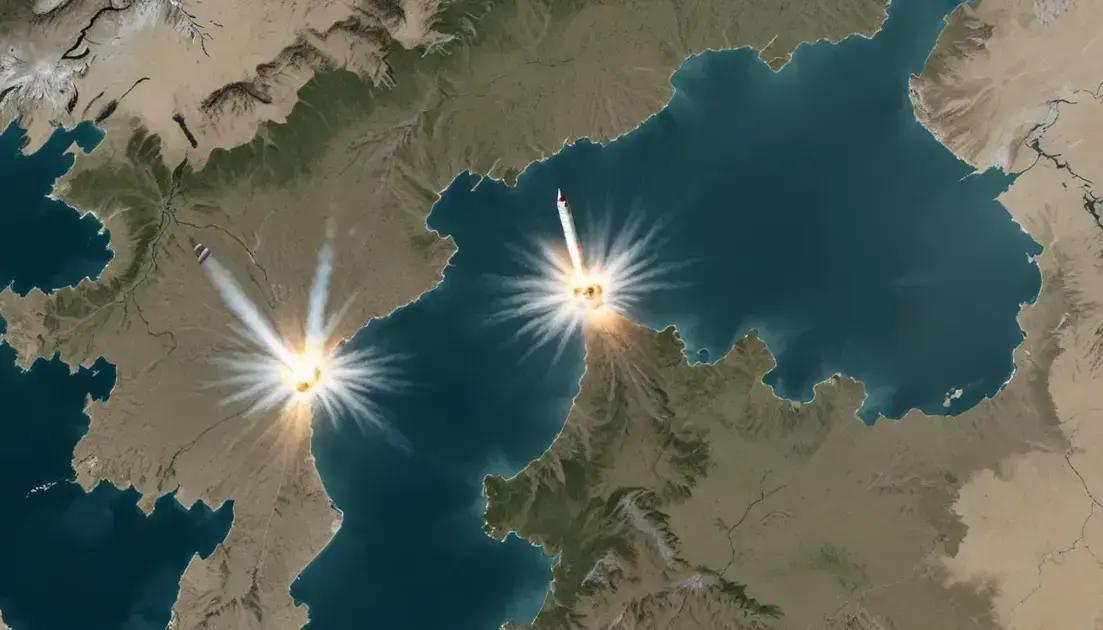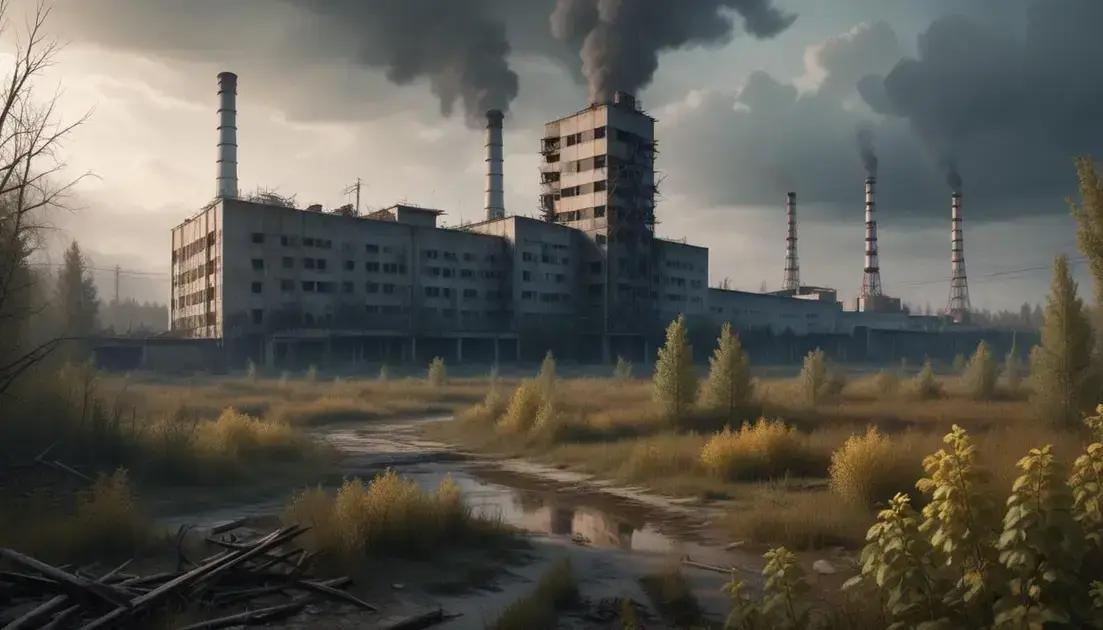
North Korea and Its Nuclear Tests: Provocation and Sanctions
North Korea’s nuclear tests have significant implications for global security, increasing tensions and prompting strict international sanctions. Engaging in diplomatic negotiations is crucial to mitigate risks and foster peace, involving key players like South Korea and China. Offering incentives for North Korea to reduce its nuclear programs can help build trust and pave the way for more stable relationships among nations.
In recent years, Nuclear Tests conducted by North Korea have sparked significant global concern, heightening tensions and prompting a mix of sanctions and diplomatic efforts. What does this mean for the future?
Historical Context of North Korea’s Nuclear Development
The history of North Korea’s nuclear development is complex and intertwined with global politics. It began in the 1950s when North Korea established its first nuclear research facility, with help from the Soviet Union. This early stage was focused on learning and developing technology.
Key Milestones in Nuclear Development
In 1985, North Korea signed the Nuclear Non-Proliferation Treaty (NPT). However, by the early 1990s, it started to withdraw from its commitments. Inspections revealed that they were not being completely transparent about their nuclear programs.
Major Testing Events
North Korea conducted its first nuclear test in 2006, which shocked the international community. This event marked a significant step in their nuclear ambitions. Subsequent tests in 2009, 2013, and beyond demonstrated their commitment to developing more advanced weapons.
The Role of International Relations
Diplomatic efforts have frequently failed, and sanctions have increased over the years. Countries around the world continue to debate how to address North Korea’s nuclear activities. Understanding this history helps us grasp the stakes involved today.
Nuclear development in North Korea is not just a local issue; it has global implications. The nation’s actions continue to pose significant challenges to peace and security in East Asia and beyond.
International Response and Sanctions
The international response to North Korea’s nuclear tests has been swift and firm. Many countries see these actions as direct threats to global security. The United Nations (UN) quickly enacted sanctions targeting North Korea’s economy.
Types of Sanctions Imposed
Sanctions can include trade restrictions, asset freezes, and travel bans. These measures aim to pressure North Korea into compliance with international laws. Over the years, the sanctions have intensified, especially after significant nuclear tests.
Impact on North Korea
These sanctions have hurt North Korea’s economy. Basic goods like food and fuel became harder to obtain. Despite the pressure, North Korea continues its nuclear program.
Global Alliances and Adjustments
The United States plays a key role in these international responses. It often collaborates with allies like South Korea and Japan. Together, they seek a unified approach to discourage further nuclear advancements.
Other countries, however, may have different views on sanctions. Some believe diplomacy is a better approach. They argue that dialogue could lead to peaceful resolutions.
Understanding the international response to North Korea’s actions helps us see the ongoing complexities of global politics and security. It shows how nations respond to threats and the balance of power in the region.
The Implications for Global Security
The implications of North Korea’s nuclear tests stretch far beyond its borders. These actions impact global security in many ways. Countries around the world worry about the potential threat of nuclear weapons falling into the wrong hands.
Increased Tensions
Nuclear tests increase tensions not just in Asia but globally. Nations may feel threatened and rush to strengthen their own military capabilities. This reaction can lead to an arms race, making the world less safe.
Impact on Allies
Countries like South Korea and Japan are particularly affected. They live under constant threat. Security measures often tighten in these nations, leading to more military presence in the region.
Diplomatic Relations
International relations can worsen due to these tests. Countries may become reluctant to engage with North Korea. This could hinder efforts to reach peaceful resolutions.
The Role of International Organizations
Organizations like the United Nations play a crucial part. They aim to promote peace and security. Sanctions and diplomatic efforts are essential tools they use.
Understanding the implications for global security helps us recognize how interconnected our world is. One nation’s actions can have ripple effects, shaping policies and relationships worldwide.
Prospective Diplomatic Solutions
Finding diplomatic solutions to North Korea’s nuclear program is crucial. Many countries believe dialogue is the best way forward. Talks can help reduce tensions and pave the path for peace.
Engagement in Dialogue
Engaging North Korea in discussions is important. It gives them a chance to express their concerns. Regular communication can build trust and promote cooperation.
Involving Multiple Parties
Solutions often require the involvement of several nations. South Korea, China, and the United States are key players. Working together increases the chances of effective outcomes.
Trade-offs and Incentives
To encourage North Korea to negotiate, nations may offer incentives. These can include economic aid or lifting some sanctions. In return, North Korea could agree to freeze or reduce its nuclear activities.
Long-term Commitment
Diplomatic solutions need patience and commitment. Progress may take time, and setbacks can happen. However, staying engaged shows a commitment to peace.
Understanding the potential for diplomacy helps us see that peaceful resolutions are possible. It’s about creating a safer future for everyone.
Conclusion
In conclusion, addressing North Korea’s nuclear program through diplomacy is vital for global peace. By engaging in dialogue, countries can work together to reduce tensions. Involving key players like South Korea and China can lead to more effective solutions.
Offering incentives for North Korea to reduce its nuclear activities is an important step. This approach not only shows a commitment to peace but also helps create a safer world for everyone.
Staying committed to diplomatic efforts is crucial, even when challenges arise. With patience and cooperation, nations can find a way to resolve these complex issues and build a brighter future.


